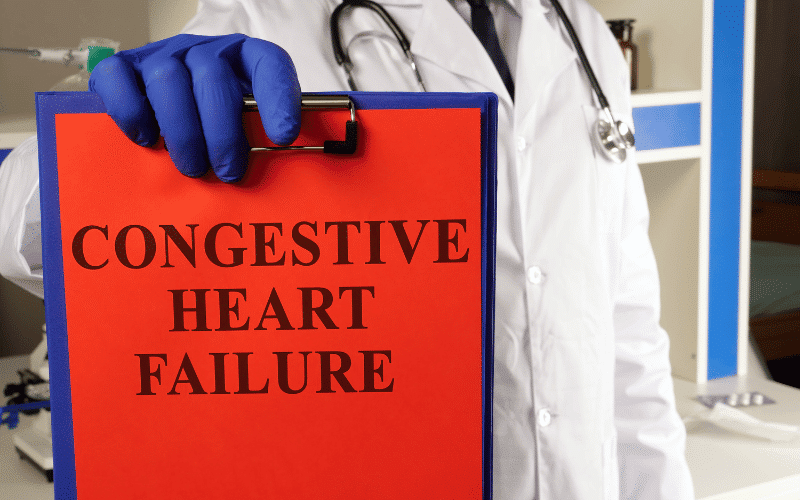Introduction: Unraveling Congestive Heart Failure

Congestive Heart Failure (CHF) is a medical condition that poses significant health risks. When the heart’s ability to pump blood effectively is compromised, it leads to a buildup of fluid. This excess fluid, or congestion, accumulates in the lungs and other tissues throughout the body, causing a variety of symptoms.
Understanding and recognizing these signs and symptoms of CHF are paramount for timely intervention and optimal treatment. A well-informed individual stands a better chance of seeking appropriate medical help at the earliest, potentially averting serious complications. The objective of this article is to shed light on 15 key signs and symptoms of CHF.
The range of symptoms associated with CHF can be broad, ranging from mild discomfort to severe health complications. Each symptom is a piece of the puzzle, providing insights into the functioning, or malfunctioning, of the heart. Understanding these signs can help individuals recognize potential CHF, seek timely medical intervention, and manage their condition more effectively.
This article aims to delve into the specifics of these symptoms, providing a detailed account of each. Recognizing these symptoms is the first step towards timely intervention, and this knowledge can potentially save lives.
Symptom 1: Breathing Difficulties: An Early Sign of CHF

One initial, yet often overlooked symptom of congestive heart failure (CHF) is experiencing difficulty in breathing. Also known as dyspnea, this condition can occur during physical exertion, at rest, or even while lying flat. It’s one of the critical signs indicating that the heart isn’t pumping as effectively as it should.
The essence of a healthy heart is its ability to pump sufficient oxygenated blood throughout the body. When CHF sets in, the heart struggles to maintain this function. Consequently, there is less oxygen available for muscles to use during exertion, leading to breathlessness or a shortness of breath. This symptom might be subtle at first, but it tends to get worse with time if left unchecked.
One common scenario in which breathing difficulties may present themselves is during physical activities. Simple tasks that previously caused no issues, such as climbing stairs, walking, or carrying groceries, might suddenly leave a person struggling for breath. The severity of this symptom can escalate to the point where these activities become impossible to carry out.
Interestingly, dyspnea isn’t only noticeable during physical exertion; it may also become evident when a person is at rest. In severe cases of CHF, patients may experience trouble breathing even while sitting or lying down, especially in a flat position. This condition, known as orthopnea, is a severe manifestation of breathing difficulties and requires immediate medical attention. (1)